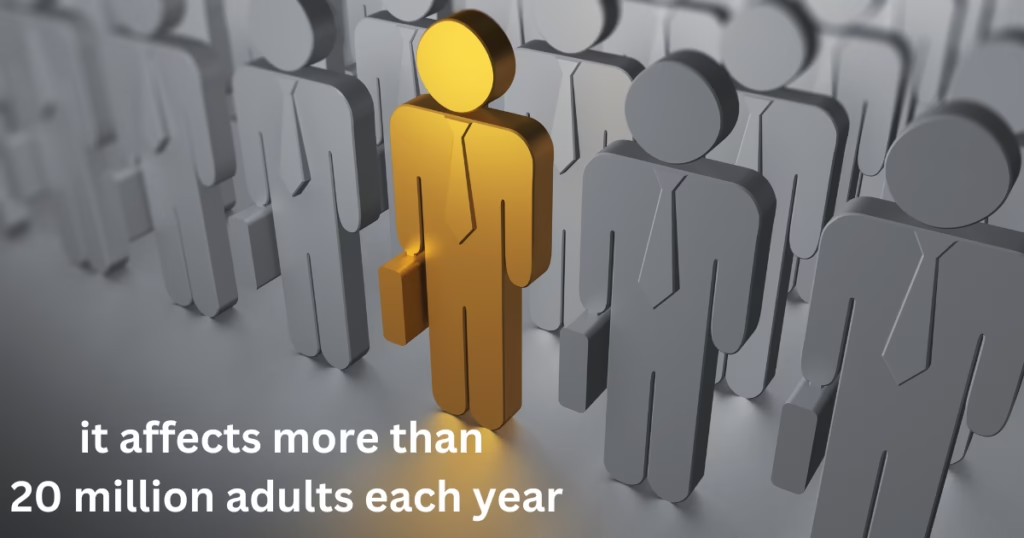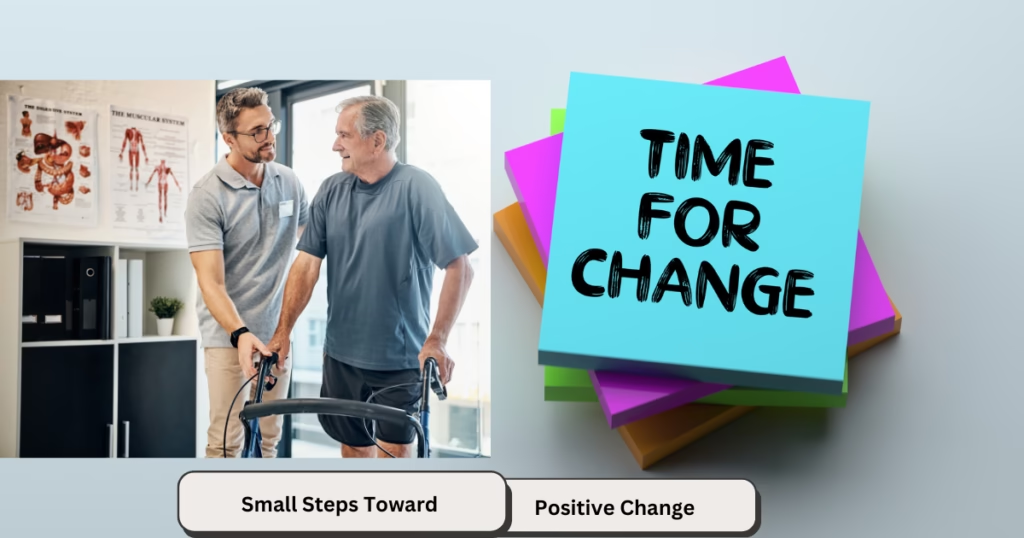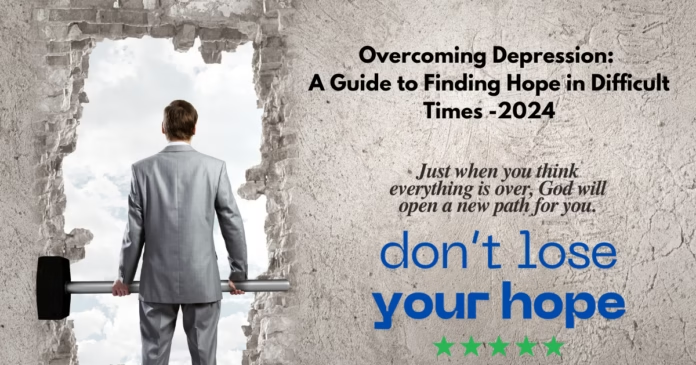Depression is a mental health condition that affects millions of people around the world. It is not just a simple sadness; it is a constant struggle. It affects every aspect of our lives – from our relationships to our daily work. Despite its prevalence, depression is often misunderstood or ignored. As a result, many people suffer in silence.
This article will help you understand the impact of depression, identify its symptoms, and find hope and recovery. With practical advice, relationships, and positive thoughts, you can learn how to emerge from this darkness and find a way to brighter days. Whether you are depressed yourself or are supporting someone who is, understanding is the first step to recovery. Let’s embark on a journey to find light in the dark.
Understanding Depression and Its Impact

Depression is one of the most common mental health problems in the United States. According to the National Institute of Mental Health (NIMH), it affects more than 20 million adults each year. It is not just a feeling of sadness or the aftermath of a specific event; it is a complex problem that affects the mind and body. When you have depression, you may not find joy in things that used to be enjoyable, you may not be able to maintain relationships, and you may have difficulty performing everyday tasks.
In the United States, depression is a leading cause of disability. It costs billions of dollars in lost productivity. But it is not just about money; it also deeply affects individuals and their loved ones. Prolonged fatigue, lethargy, feelings of worthlessness, and an inability to concentrate are common symptoms. For some, these symptoms come on gradually; for others, they come on suddenly.
Genetics, life experiences, and physical changes can all contribute to depression. For example, stressful events such as job loss, divorce, or the death of a loved one can trigger depression. Moreover, social pressure and the fact that people are embarrassed to talk about this problem in the United States have made this situation worse.
Depression should be understood as a medical condition; it should not be seen as a personal failure. With the right support, treatment, and coping strategies, symptoms can be managed and people can live fulfilling lives. Raising awareness and education can reduce stigma and help those in need.
Signs You Shouldn’t Ignore
A little hope for those who are depressed!
Many people are unaware of the symptoms of depression. But the sooner you recognize them, the sooner you can get help. In the United States alone, 8.4% of people suffer from major depression each year. Understanding these symptoms can make a big difference.
Some of the symptoms of depression include: feeling tired all the time, feeling empty, and having no hope for the future. They may no longer be interested in things they used to enjoy. This can last for weeks or months and affect their future.
Physical symptoms include: extreme fatigue, changes in eating habits, weight gain or loss, and sleep problems (insomnia or sleeping too much). Some people experience pain for no apparent reason, which usually goes unnoticed.
Changes in behavior: People with depression may withdraw from social interactions, struggle to make decisions, and have difficulty concentrating. In severe cases, they may have thoughts of harming themselves or committing suicide. Suicide is a major social problem in the United States, and depression is a major cause of this.
These symptoms are different for everyone, but they should never be ignored. If you or someone you know is experiencing these symptoms, it is important to seek help immediately. The National Suicide Prevention Lifeline (988) and your local mental health services can provide valuable assistance. With timely help, you can recover and have a brighter future.
Small Steps Toward Positive Change

Stress: Small changes, big difference!
When there is stress, making good changes can be a big deal. But, making small changes in moderation can help us recover from that problem. Millions of people in the United States suffer from stress. They are doing many useful little things and are doing well.
Give importance to the body: A 15-minute walk without much effort is enough. It will make the mind happy. As the CDC (Centers for Disease Control and Prevention) says, exercise is very important for mental health. It is a powerful way to relieve stress.
Keep a good schedule: Stress can ruin our day. It can be very difficult to do everything. But, keep a routine that wakes up at the same time. It will give a good order and control in our life.
Talk to someone: Talking to trusted friends and family is very helpful. Meeting friends, online comments, and all this can protect us from being alone.
Talk to a doctor: Treatment like CBT (Cognitive Behavioral Therapy) is available everywhere in America. If necessary, a psychiatrist will prescribe medication.
You don’t have to make small changes all at once. Be happy with even the smallest changes. With our efforts and our helpers, good days will come, no matter how difficult the times are.
The Role of Support and Connection

In the fight against depression, support and relationships are very important. Not only in the United States, but millions of people around the world suffer from this type of depression. At such times, having a good support group can make a big difference. If you don’t see each other, the stress will increase even more. But good relationships can help break this cycle.
Family and friends: Your loved ones will be your first support. Even a small talk, a listening ear, or a reassuring position can bring a lot of comfort to those who are depressed. Many families in the United States are now learning about mental health disorders and are learning to understand and support each other better.
Community groups: Community organizations and support groups provide safe places to share your experiences. Groups like the National Alliance on Mental Illness (NAMI) offer support nationwide, as well as local peer support groups.
Workplace support: Many companies in the US are recognizing the importance of mental health. Many companies offer Employee Assistance Programs (EAPs), which provide confidential counseling and mental health services.
Online communities and helplines: Some people may be uncomfortable reaching out to people in person. For those, online forums and helplines can provide confidential support. Platforms like the National Suicide Prevention Lifeline (988) and Mental Health America have online screening tools.
Professional help: Therapists and counselors can provide a structured way to deal with stress. In the US, therapy is easily available through telecare. You can meet licensed professionals from the comfort of your own home.
Building and maintaining relationships is not just a way to cope with stress; it’s a lifesaver. Having someone else support you can help those who are struggling feel like they’re not alone; it can give them confidence that help is always available.
Building Hope for a Brighter Future
Even if the darkness surrounding you seems like a mountain, you can walk with confidence towards a brighter future. There are ways and programs to help with the depression that millions of people in the United States face. You can use these methods to rediscover your joy and purpose.
Set achievable goals: Set small goals first. Attainable goals that align with your beliefs. Even small achievements will move you to the next level with confidence.
Focus on your strengths: Think about the challenges you have faced in the past. Many volunteer groups and treatment centers in the United States can help you find your strengths. This will build confidence and courage.
Accept the good things: It is normal to feel upset. But cultivate a sense of gratitude and change your thoughts. You can write down the good things in a notebook. No matter how small the things are. Many people with depression in the United States are using this method to see good results.
Live in harmony with nature: Spending time outdoors will make you feel happy. Stress will be reduced. American studies show that walking in the park and gardening together can improve mental health.
Seek professional help: Seek help from a mental health professional. They can provide long-term solutions. Therapists, psychiatrists, and counselors in the United States can help you change negative thoughts. They can also help you make better plans for the future.
Remember, recovery is not a race, it’s a journey. If you walk each step with confidence, you can emerge from the darkness of depression. The important thing is to keep moving forward.
Conclusion
Depression is a difficult journey, but one does not have to fight it alone. If we understand how it affects us, recognize the signs, and take small, positive steps, hope and better days will come. There are people who love us, going to the doctors, and fighting with our inner strength are all great weapons that can help us overcome this illness.
In countries like the United States, where many people suffer from depression, there are support groups, helplines, and mental health professionals. Every step we take, no matter how small, can help make our lives happier and more beautiful.
Depression is not our life. It is our inner strength to face that difficulty that will grow us. With the right help and self-confidence, we can find light even in difficult times. Move forward – you are not alone. There are many people on this journey with you.
What are the main causes of depression?
Depression can have multiple causes, including genetic, biological, environmental, and psychological factors. Stressful life events like job loss, the death of a loved one, or chronic illness can trigger depression. In the U.S., societal pressures and financial difficulties are also common contributors.
How can I tell the difference between sadness and depression?
Sadness is a temporary emotional response to specific events, while depression is a persistent condition that lasts weeks or longer and affects daily functioning. Common signs of depression include loss of interest in activities, changes in sleep or appetite, and feelings of worthlessness. If these symptoms interfere with daily life, it’s important to seek help.
What treatments are available for depression in the United States?
Treatment options include therapy (such as Cognitive Behavioral Therapy), medications (like antidepressants), and lifestyle changes, such as exercise and mindfulness. In the U.S., telehealth services and Employee Assistance Programs (EAPs) also make therapy and counseling more accessible.
How can I support a loved one with depression?
Start by listening without judgment and encouraging them to seek professional help. Offer practical support, like helping with errands or attending appointments. In the U.S.,




